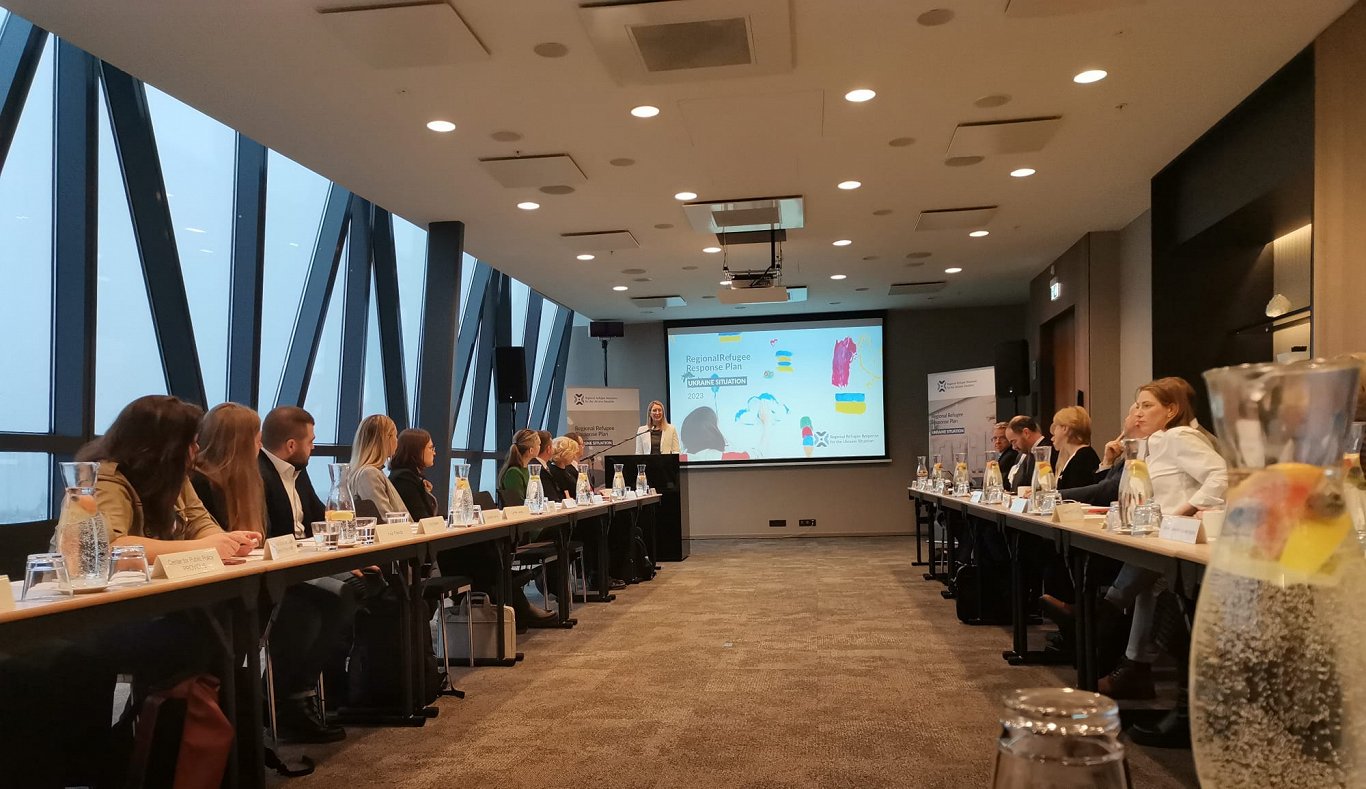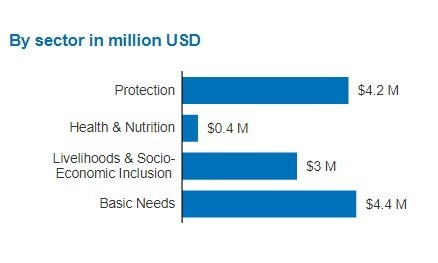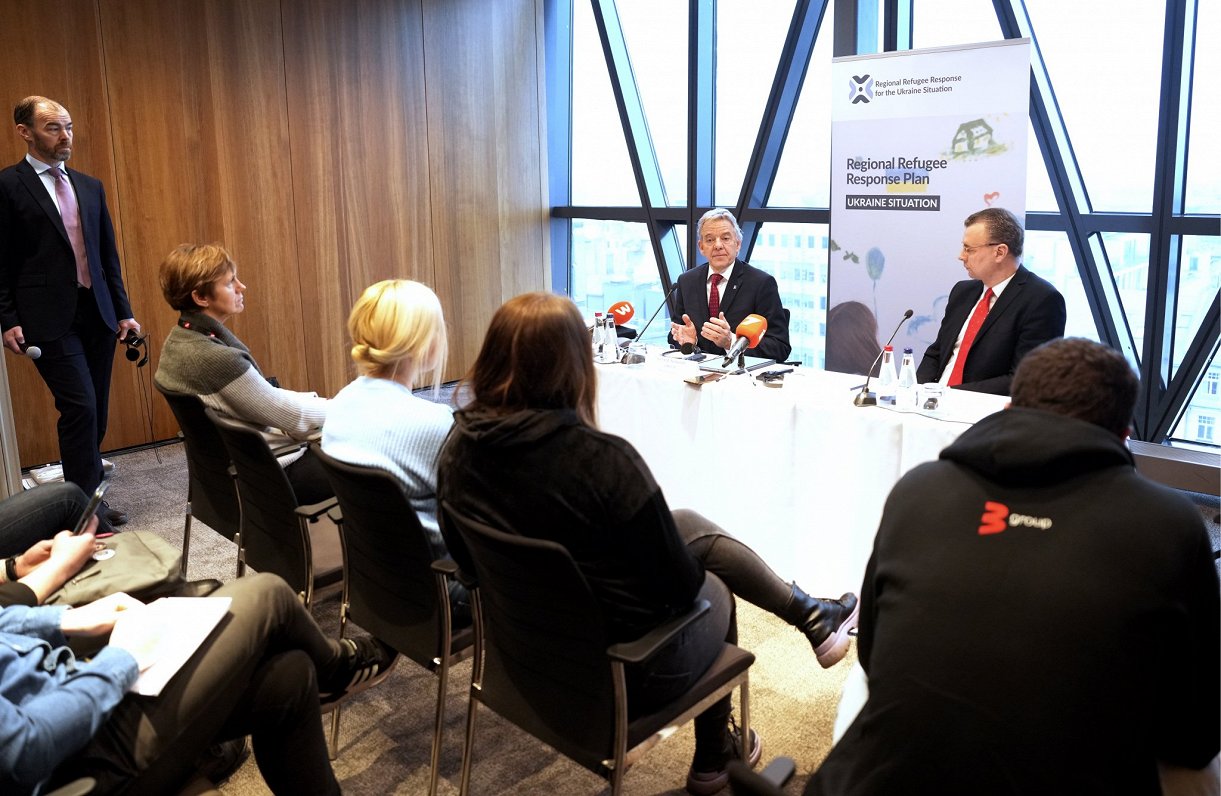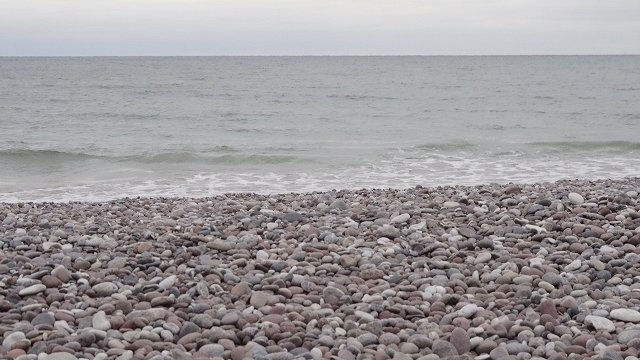February 24 will mark one year since the Russian war in Ukraine began. Since the countries nearby are the most affected by the influx of refugees, a regional plan covering Bulgaria, the Czech Republic, Estonia, Hungary, Lithuania, Latvia, Moldova, Poland, Romania and Slovakia, has been in place since last year. On Friday, a cooperation meeting between the UNHCR representatives, the Latvian government's representatives, and NGOs took place to mark the second year of the action and to discuss the way forward.

UNHCR and humanitarian partners plan to continue their support in the provision of basic needs, food security, housing, health, protection, and livelihoods, both to Ukrainians staying in Latvia for a longer time and those in transit. The main goal of the plan is to that help on different levels is coordinated and reliable.
"In the beginning we had people driving refugees in many different directions which poses risks [..]. Such things are starting to be more organized. Making sure that people who are volunteering and offering certain things are vetted," said UNHCR representative in the Nordic and Baltic Henrik M. Nordentoft.
"Ukrainians, from the institutional viewpoint, are given the same help as any Latvian resident. This principle governs the entire management and the work with Ukrainians," said Interior Ministry's Secretary of State Dimitrijs Trofimovs.
The plan for Latvia requires USD 12 million for the year. These funds are yet to be raised, mainly from public funding sources, and private donors locally and abroad.

Speaking to LSM about whether such a plan might make it seem that Ukrainian refugees are treated in a different way to other refugees, Nordentoft said:
"We should be satisfied that there is such a whole-society support. [..] It is true there might not be the same solidarity toward other nations. But we feel that the momentum we have created with Ukrainian refugees may, in the medium term, change the way of seeing the support. There is a positive, more favorable discrimination toward Ukrainians, but it does not mean that there is a negative discrimination toward others."
Asked whether, in his mind, the migrants (mainly from the Middle East) taken to the Belarusian-Latvian border count as real refugees, Nordentoft responded indirectly, saying that "there is no way of knowing whether a person is a refugee or not without giving them a chance to present themselves first."
The UNHCR launched the 2023 Regional Response Plan on an international level on February 15.
The 2023 Regional Refugee Response Plan for the Ukraine Situation was launched on 15 February. The Baltic countries have now joined.
— UNHCR Nordic and Baltic Countries (@UNHCR_NE) February 17, 2023
Today we officially launched the plan for Latvia 🇱🇻 @IeM_gov_lv @Latvian_MFA
🔗https://t.co/ZJ2564AHhk pic.twitter.com/JEzL9eE8KR



























